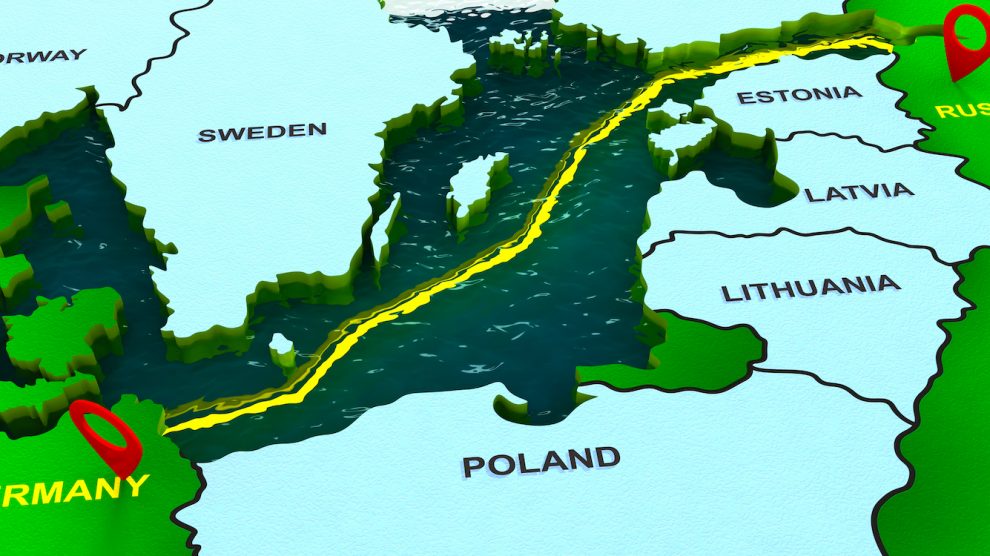Central Europe
The European Commission has warned Poland it could face fines if it fails to comply with two decisions by the European Court of Justice over judicial independence. Following the latest report, the Commission has ruled that Poland has seven days to freeze its controversial Disciplinary Chamber or pay fines for failing to comply with EU law. “I am waiting for information from the prime minister. The government is responsible for the relations with the EU, and the government was notified about the verdict. I will take action as soon as I have received official information,” Małgorzata Manowska, the first president of the Supreme Court, told Rzeczpospolita.
Poland has chosen its new ombudsman. On Wednesday, Marcin Wiącek, lawyer and professor at the University of Warsaw, was elected by the Polish Senate to the post of ombudsman, with 93 votes in favour. The election of the ombudsman in Poland lasted several months. The term of office of the previous one, Adam Bodnar, already extended, finally expired last week. The ombudsman’s office is an independent institution that safeguards the civil rights of individuals, can represent them in disputes with government authorities and has the power to obtain reversals of some state decisions.
Hungary’s PM Viktor Orbán announced plans on Wednesday to call a referendum on child protection issues to combat pressure from the European Union over legislation which the bloc says discriminates against LGBT+ people. Analysts say this might be an act of desperation. “Orbán is desperate to set the agenda for the upcoming months. His aim is to make sure that Hungarian politics will be mostly about cultural issues, especially about gender issues, LGBT rights, etc., given that the Hungarian society is rather conservative on these issues. It shows how desperate this attempt is, that until this morning, referendums weren’t even allowed in Hungary because of the Covid crisis,” one told Emerging Europe.
Of all eight non-euro EU member states, Romania tops the chart of single-currency favourability, with 75 per cent wanting the euro switchover, up from 63 per cent in 2020. According to the Flash Eurobarometer, Romanians are followed by other eastern and central European nations, with 69-per cent of Hungarians, 61-per cent of Croats and 54-per cent of Bulgarians favouring joining the single currency. Meanwhile, Bulgaria and Croatia have been admitted to the Exchange Rate Mechanism (ERM II), the first step in joining the euro. Officials in Bulgaria set 1 January 2024 as the accession date to the euro area.
The centre-right pro-European coalition Democratic Bulgaria was the only political formation to openly support the EU integration of North Macedonia on the first day of the new Bulgarian parliament on Wednesday. Hristo Ivanov, leader of the parliamentary group of Democratic Bulgaria, said North Macedonia’s EU membership is strategically important for Bulgaria. The country disapproved of Skopje’s negotiating framework in December 2029 over historical and linguistic disputes, as well as growing anti-Bulgarian rhetoric in the country. The firm attitude towards North Macedonia is supported by the majority of Bulgarians, according to opinion polls.
Slovenia’s National Assembly has appointed Mark Boris Andrijanič, a law graduate who has worked for Uber, as digital transformation minister, heading the Digital Transformation Office, a new government body, and coordinating digital transformation activities across the government. Andrijanič pledged to work for digitalisation to become a national priority and a project uniting Slovenia’s society and politics. He believes Slovenia lags behind in digitalisation.

Eastern Europe
The United States and Germany have reached a deal on a controversial gas pipeline between Russia and Europe, seeking to placate critics in Washington and Central and Eastern Europe. They fear it will mainly benefit Moscow. In response to that, Ukraine has demanded formal talks with Brussels and Berlin on the pipeline, known as Nord Stream 2, invoking a clause of its agreement with the EU on political association and economic integration. Kyiv’s foreign minister, Dmytro Kuleba, also sent a joint statement with his counterpart in Poland, saying President Joe Biden’s decision to stop opposing the pipeline “has created political, military and energy threat for Ukraine and Central Europe, while increasing Russia’s potential to destabilise the security situation in Europe, perpetuating divisions among NATO and European Union member states.”
On July 19, at the Batumi International Conference, the presidents of Georgia, Moldova and Ukraine signed a declaration committing to “trilateral cooperation among our countries on European integration and reiterate our pledge to work together for the peaceful, democratic and prosperous European future for Georgia, Moldova and Ukraine.” The conference took place several days after the so-called Tbilisi pogrom, “the most violent civil attack witnessed since the 1990s civil war.” “I also stressed in all my meetings today the central role fundamental rights and freedoms play in our EU-Georgia relations. Rights of minorities are not a marginal issue — respect for diversity and human dignity are essential to our fundamental values,” European Council President Charles Michel, who participated in the conference, said in a statement.
Belarus’ Justice Ministry wants the country’s highest court to shut the Belarusian Association of Journalists (BAJ) over alleged flaws in office lease documents. Earlier, on Monday, authorities froze the bank accounts of the Belarusian PEN Centre, an association of writers led by Svetlana Alexievich, the winner of the 2015 Nobel Prize in literature. These moves come amid a relentless clampdown on independent media in the country. In the last two weeks, authorities have conducted 67 raids of media offices and journalists’ apartments over the previous two weeks, while 31 journalists are in custody either awaiting trial or serving prison sentences.
Ukraine aims to build 25 new industrial parks by the end of the summer of 2024. According to Oleksii Chernyshov, minister of community and territorial development, this will create hundreds of thousands of jobs in related sectors of the economy and will be platforms for investment by Ukrainians from abroad. Currently, there are 50 industrial parks, but only ten are working. This year, the government is investing 3 million US dollars in building infrastructure in four industrial parks. To jump-start the rest, Parliament recently passed on first reading a bill that would depend on levels of exports, compensate companies in industrial parks for up to 50 per cent of the cost of connecting to the power grid and up to 70 per cent of initial capital expenditures and loan interest payments. Two more bills in the Rada would give companies in industrial parks 10-year tax holidays from income tax and VAT tax on imported capital goods.
Nagorno-Karabakh authorities are trying to prop up their economy by boosting tourism. In 2019, the region hosted nearly 42,000 foreign visitors, 46 per cent more than in the previous year. However, in 2020, Karabakh saw just 2,444 visits, a year-to-year drop of 94 per cent. In the first half of 2021, 1,447 foreign tourists visited a further 30 per cent decrease from the same period in 2020. The self-proclaimed state lost 75 per cent of the territory it controlled to Azerbaijan. The tourism department has begun offering subsidised tours around Karabakh. Also, in June, Karabakh’s capital of Stepanakert hosted Tech Week Armenia, which attracted 1,500 participants and 60 speakers from IT companies in Armenia and Karabakh.
North East Europe
Last Tuesday, the European Union promised Lithuania to handle an influx of migrants from the Middle East and Africa, which the Baltic nation says is encouraged by authorities in neighbouring Belarus. During a visit to a border village of Medininkai, Charles Michel, president of the European Council, said the EU “will do [its] utmost to provide more support so that the Lithuanian authorities can overcome these difficulties and find solutions.” Last week, the country declared a state of emergency as more than 1,200 people were detained after entering from Belarus last month – twelve times more than in previous years. Another 131 were discovered walking in a border wood last Monday night.
Taiwan is to establish a “Taiwanese Representative Office in Lithuania,” the first office in Europe to be called Taiwanese, according to Taiwan’s Ministry of Foreign Affairs. Taiwan intends to expand the nation’s relations with central and eastern Europe, especially with Baltic countries. In May, Lithuania announced it was quitting China’s 17+1 cooperation forum with Central and Eastern European states, calling it “divisive”. The Baltic country plans to establish a trade office in Taiwan by the end of this year.
Latvia plans to purchase battery-powered trains in Riga and the vicinity and improve tracks by 2026, the country’s Ministry of Transport has announced. In order to determine the most appropriate parameters for the operation of battery trains in Latvian conditions, the Ministry intends to order a feasibility study for evaluating the technological and economic aspects of the intended investment in the second half of 2021.
Estonia may face 100,000 euros a day fines for logging protected forests, similarly to Poland. Contrary to the Estonian Ministry of the Environment’s statement, the state permitted the harvesting of some 18,015 cubic meters of wood on close to 255 hectares in Natura forest habitats in state forest land and 76,448 cubic meters on 1,075 hectares of said sites in privately owned forests. The Environmental Information Association compared the current annual prescribed yield to maps of conservation areas. From 2001 to 2019, altogether, 15,000 hectares of forests in the Natura 2000 network were destroyed.
South East Europe
Most Albanians cannot afford significant purchases or investments, says the Bank of Albania’s latest survey on consumer confidence. 88 per cent of respondents are unable to buy a house in the next 12 months and 61 per cent say they cannot afford a car. This decline in purchasing power stands in contrast to the boom that the real estate market Albania has experienced in the past few years. Over 15.6 billion Albanian leks (about 127 million euros) in construction permits were approved in Tirana alone in the first three months of 2021, according to the National Statistics Institute (INSTAT). This marked a 36 per cent increase compared to 2020. According to the Bank, house prices have reached an average of 1,900 euros per square metre.
Serbia has the least affordable own housing among 22 countries in Europe, included in Deloitte’s Overview of European Residential Markets. Buyers in Serbia needed an average of 15.2 gross annual salaries to purchase a standardised dwelling. The Western Balkan country was followed by Czechia with 12.2 gross annual salaries and Slovakia with 10.6. Buyers in Latvia, Slovenia, Hungary and Croatia had to spend between 8–10 average annual salaries to afford their own house. If local buyers are looking for an average new dwelling in Poland, Romania, Bosna and Herzegovina, the United Kingdom, the Netherlands, Italy and Germany, they would need to save money for about 6–8 years.
Very good affordability of own housing can be found in Norway, Bulgaria, Portugal and Belgium. In these countries, a standardised dwelling can be purchased for about 4–5 times the average annual salary.
Serbian President Aleksandar Vučić will contest his Turkish counterpart Recep Tayyip Erdogan’s plan to help increase international recognition for Kosovo. Last Monday, Erdogan said he would propose that US President Joe Biden join forces to achieve more international recognition for Kosovo. Europe’s youngest country declared independence from Serbia in 2008, more than eight years after the end of an unequal war between the two, which left nearly 9,000 Albanians killed by Serbian troops in Kosovo territory. The United States was the first country to recognise its independence, followed by Turkey, Albania, and later more than half of the 193 United Nations member states.
A Chinese-backed deal to help Bosnia and Herzegovina’s electric utility company, EPBiH, expand its coal-fired power plant in Tuzla has run into problems with funding. General Electric is said to have withdrawn from the project, which means plans might not go ahead at all. The coal-fired plant would have cost over 931 million euros to erect, according to the recent publication of documents on Sarajevo news portal Klix. EPBiH picked China Gezhouba Group and Guandong Electric Power Design in 2014 to build a 450 megawatt (MW) unit in Tuzla to replace three ageing units at the 715 MW plant.
The former national carrier of Montenegro, which is currently undergoing bankruptcy proceedings, has restored some business operations and reopened its sales offices in the country. The company will sell airline tickets to all destinations by all airlines, organise passenger transfers and packages and tours. The development is part of the bankruptcy administrator’s plan for the company to begin earning revenue again. Montenegro Airlines has said it will serve to support the new flag carrier, Air Montenegro, and is looking to restore its maintenance operations at Podgorica Airport to cater for Air Montenegro’s needs.
Central Asia
Kazakhstan saw an almost sixfold increase in its share of global bitcoin mining in April 2021, according to research the Cambridge Centre for Alternative Finance. It climbed to 8.2 per cent from 1.4 per cent, which ranks the country third globally, after China and the United States. The research also suggests many bitcoin miners had fled China for neighbouring Kazakhstan, a former Soviet republic. In April, China accounted for less than half (46 per cent) of the power used for bitcoin mining, down sharply from 75.5 per cent in September 2019. That’s before authorities ordered a crackdown on the mining of cryptocurrencies in June.
Abu Dhabi-based renewable energy firm Masdar has secured agreements to develop two solar photovoltaic (PV) projects in Uzbekistan. The company plans to invest up to 300 million US dollars in these projects, which have a total capacity of 440MW. Masdar will produce power for the National Electric Grid of Uzbekistan for a 25-year period at tariffs described as ‘record low’. Uzbekistan’s government has committed to developing 8GW of solar and wind capacity by 2030.
The National Bank of Tajikistan expects to receive a concessional loan from the International Monetary Fund before the end of this year as part of the Extended Credit Facility Programme. The Bank says that many of the Fund’s preconditions had already been met, and they are currently discussing the issue of resumption of the programme. The IMF loan, extended under the Poverty Reduction and Growth Facility, supported the Tajik authorities’ economic program for 2009-12, and more than 160 million US dollars were reportedly provided to Tajikistan in the form of the concessional loan.
Unlike many news and information platforms, Emerging Europe is free to read, and always will be. There is no paywall here. We are independent, not affiliated with nor representing any political party or business organisation. We want the very best for emerging Europe, nothing more, nothing less. Your support will help us continue to spread the word about this amazing region.
You can contribute here. Thank you.








Add Comment